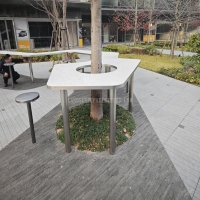Welcome to the website for landscape facilities products and knowledge.
What are the most important sustainability considerations in the bin’s lifecycle?
The lifecycle of a bin involves several critical sustainability considerations to minimize environmental impact and promote eco-friendly waste management. From production to disposal, each stage plays a vital role in ensuring sustainability.
1. Material Selection: Opting for recycled or biodegradable materials, such as recycled plastic or bamboo, reduces the carbon footprint during manufacturing. Sustainable materials also ensure easier recycling at the end of the bin's life.
2. Manufacturing Process: Energy-efficient production methods and reduced water usage contribute to a greener manufacturing phase. Factories adopting renewable energy sources further enhance sustainability.
3. Usage and Durability: A long-lasting bin reduces the need for frequent replacements, lowering waste generation. Features like rust resistance and sturdy design extend its lifespan.
4. Recycling and Disposal: Designing bins for easy disassembly allows for efficient recycling of components. Proper end-of-life management ensures materials re-enter the production cycle rather than landfills.
5. Consumer Education: Encouraging users to segregate waste correctly maximizes the bin's efficiency. Clear labeling and awareness campaigns foster responsible waste disposal habits.
By addressing these considerations, bins can become a cornerstone of sustainable waste management, aligning with global environmental goals.
Related search:

Recommendation
An outdoor bar counter with stainless steel and terrazzo materials in an irregular shape